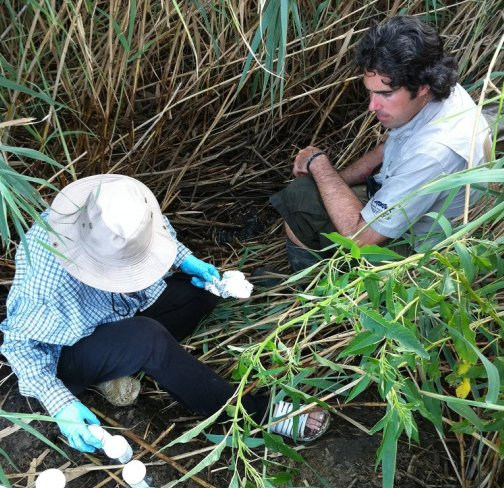Top 5 of 2011 - #2: Poisoned in the Gulf

NOTE: Facing South will be posting lightly over the winter holidays. As we close out the year, we look back at our big stories of 2011. Our earlier entries in the series included the new war on voting, who's behind the attacks on climate scientists and the fight to save Troy Davis.
In the fall of 2005, after witnessing the devastation following Hurricane Katrina and the failure of the federal levee system in New Orleans, the Institute for Southern Studies launched Gulf Coast Reconstruction Watch to monitor the region's rebuilding.
As part of that initiative, ISS published numerous reports on the post-Katrina reconstruction: "The Mardi Gras Index: The State of New Orleans by Numbers Six Months After Hurricane Katrina," "One Year After Katrina: The State of New Orleans and the Gulf Coast," "Blueprint for Gulf Renewal: The Katrina Crisis and a Community Agenda for Action," "Hurricane Katrina and the Guiding Principles on Internal Displacement," and "Faith in the Gulf: Lessons From the Religious Response to Hurricane Katrina."
The Institute was wrapping up that program when in April 2010 fresh disaster struck the region: BP's deadly Deepwater Horizon explosion and the massive oil spill that followed.
Given our close ties to Gulf communities, we turned our attention to reporting on the spill and the work being done to address the resulting environmental and economic crisis by grassroots groups. During our reporting missions to the region, one concern that we heard repeatedly was that the spill was taking a toll on the health of the region's residents -- and that they were having a hard time getting government officials to acknowledge let alone address the problem.
So we began digging, and in April 2011 -- a year after the disaster began unfolding -- we published a five-part investigative series titled "Poisoned in the Gulf." The pieces of that series were:
* Poisoned in the Gulf, giving an overview of the post-spill environmental health crisis and examining the experiences of cleanup workers and coastal residents who reported debilitating health problems associated with exposure to toxic chemicals in crude oil and dispersants;
* A Regulatory Disaster, looking at the steps federal agencies took that may have further compromised the health of workers and residents;
* Chronic Exposure, examining how the oil industry's harm to communities' health goes far beyond the BP disaster;
* Blocking Reform, reporting on the ways oil and gas interests largely succeeded in derailing new health and safety rules in the disaster's wake; and
* BP Health Crisis Sparks Grassroots Action, looking at how the disaster inspired ordinary people to fight for change.
We have continued to follow the story, reporting on research confirming that the Food and Drug Administration underestimated health risks of Gulf seafood following the disaster, the ongoing oiling of Gulf communities from oil that lingers in the ecosystem, and problems faced by people with spill-related illnesses when they file claims with the BP compensation fund. And we will continue to follow new developments in 2012.
(Photo of Wilma Subra and Paul Orr of the Louisiana Environmental Action Network collecting samples for chemical testing in the wake of the BP disaster courtesy of LEAN.)
Tags
Sue Sturgis
Sue is the former editorial director of Facing South and the Institute for Southern Studies.
